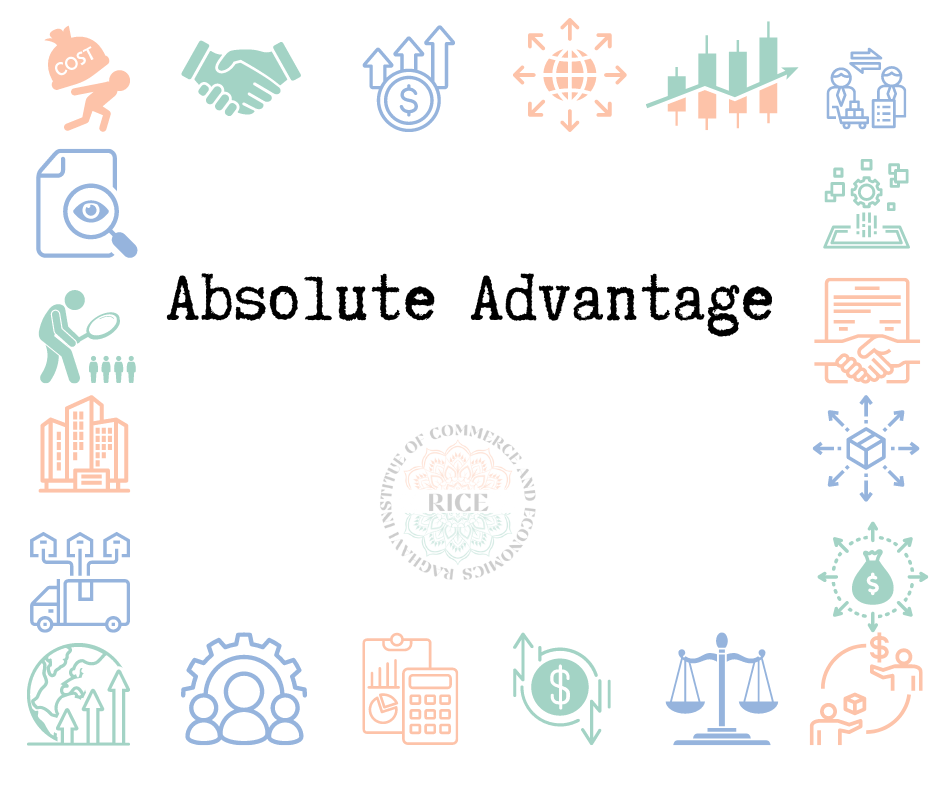In the field of economics, the absolute advantage refers to the ability of a country, region or an entity to produce some specific goods or service more efficiently than the rest of the entities. It is generally measured in terms of quantity of resources such as labour, capital or time which is required to produce the good or service. In case if an entity can produce more of a good or service with the same or fewer resources then it is said to have an absolute advantage. So, Absolute advantage is being the best at doing something with the least amount of effort.
For example, if one country can produce more cars than another country using the same number of workers in the same amount of time, it has an absolute advantage in car production.
This is a fundamental concept in International trade theory. It is used by economists to explain the trade patterns between countries and for understanding how the nations can benefit from specializing and trading based on their own absolute advantage. It very important in explaining why some countries export certain goods while importing others.
Examples:
- A country with a natural abundance of fertile land such as Brazil may have an absolute advantage in agricultural products like soybeans or coffee
- A nation with a highly skilled workforce and advanced technology like Germany might have an absolute advantage in manufacturing complex machinery.
Source: A to Z of Economics by Dr. NC Raghavi Chakravarthy

